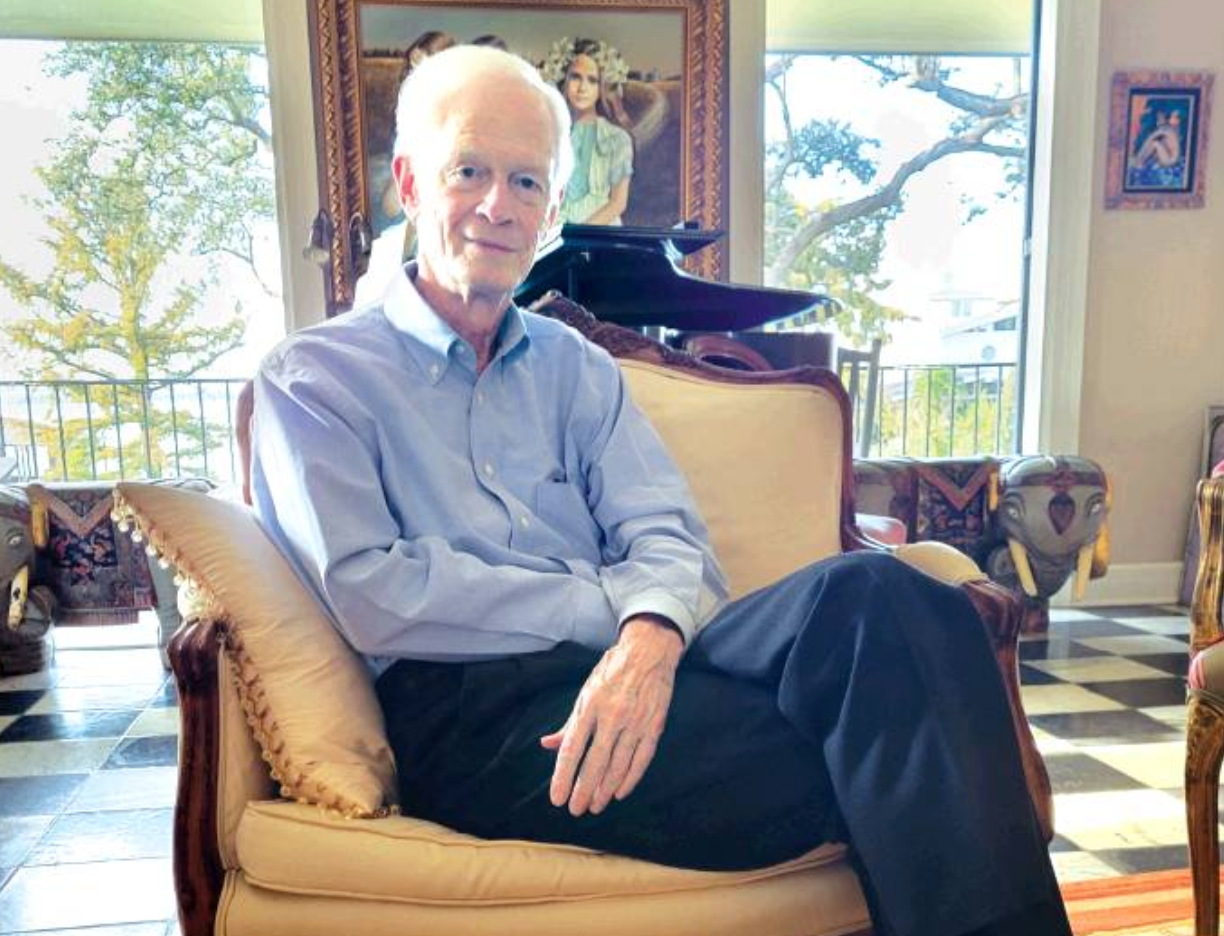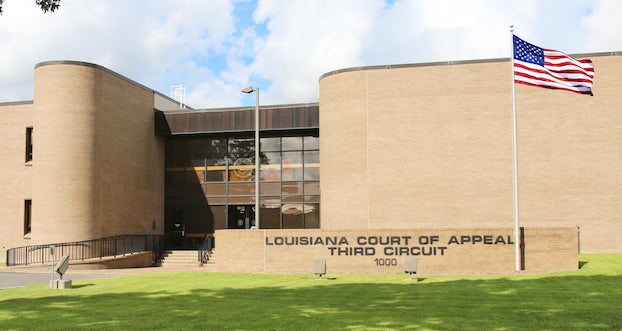When Robert “Bob” Jones served as a Louisiana legislator in the ’70s, the time was ripe for change. However, the political environment was nothing like it is now, he said. He’s talking about the animosity between Democrats and Republicans that can often stand in the way of getting things done.
“Back then we could holler and argue and then go have a beer and everything was OK,” Jones said. “These days, it’s like you’re from one tribe if you have an ‘R’ after your name and a different tribe if there’s a ‘D.’ I don’t understand what it’s come to. Sometimes it seems like we were much better off before we had a two-party system.”
He’s talking about a time when the majority of Louisiana politicians were Democrats. That’s when Jones and a group of young legislators, who were in their 20s and 30s, pioneered a new trail in state government. Reporters throughout the state, including Jim Beam from the American Press, called them the “Young Turks.” The name stuck.
The Young Turks — Ben Bagert, James Bel, Walter Bigby, Edward H. Booker, Richard “Dickie” Breaux, Thomas Casey, James Dennis, R.W. “Buzzy” Graham, Richard “Dickie Guidry, John J. Hainkel Jr., E.L. “Bubba” Henry, Kenneth Leithman, Gerald Lofaso, Ralph Miller, Leon E. Soniat Jr., Charles L. Vining, Donald Williamson, William L. “Bill” McLeod Jr. and Robert “Bob” Jones — were named the recipient of the Political Group Award at the 29th Annual Hall of Fame Induction Ceremony & Banquet.
Lake Charles native turned Bostonian Paul Hart Miller nominated the Young Turks. It’s his hope that putting a light on this group might make today’s young leaders willing to support what may not always be the popular view, do their homework and dig into an issue, see all sides and ultimately realize an individual who opposes their view, regardless of party affiliation, may come to a different conclusion and still be considered a good legislator.
“Compromise has come to be seen as a bad thing,” Miller said.
Some of the Young Turks are no longer alive. The ones who are can no longer be called young. Two are from Lake Charles, the late Bill McLeod and Bob Jones. Miller’s family was friends with both.
“They were my heroes,” Miller said, “Bobby was born into service, born into politics. His father was a noted reformer from a time when reform was a tough thing to accomplish,” Miller said.
Jones’ father, Sam Houston Jones (July 15, 1987 – Feb. 8, 1978), was governor of Louisiana from 1940 to 1944.
“For lack of a better word, Huey Long had become a dictator and ultimately, it got him killed,” Jones said. “When he died, he had built up quite a regime.”
Richard W. Leche became governor. Huey’s brother, Earl K. Long the Lt. Governor in 1936.
“Huey had always told his friends who were part of his regime, ‘You better hope nothing happens to me. Because if it does, I won’t be able to protect you,’ ” Jones said.
Leche was indicted for mail fraud and taking kickbacks. Earl Long finished out the term. Sam Jones won the governor’s race in 1940, defeating Earl Long.
“Earl was relatively clean,” Jones said. “But the anti-Longs were horrified by what is referred to as the Louisiana Scandals, and they were looking for a clean-cut somebody who could beat Earl Long. As president of the Louisiana Division of the American Legion, Dad traveled all over making speeches, and he could flat give a speech. He was young, patriotic.”
Bob Jones is long and lean. The timbre of his voice and timing to his storytelling makes him easy to listen to. To keep fit, he rows his kayak in front of his Lake Charles Shell Beach Drive home most mornings, the home where he’s had the same phone number since 1962. When he props up his feet in the Jones’ living room, he looks boyish. He is 82. His wife, Sarah Quinn Jones, is 83 and continues to teach ballet.
“I was one year old the day we moved into the governor’s mansion,” Bob Jones said. “It was the first day I walked, and I absolutely remember that day…these huge chandeliers and everyone pointing at me. Nobody believes me.”
Neither his straight-laced father nor his spirited mother, Louise Gambrell Boyer Jones, urged their son to enter the political arena. Jones said he and his father had fiscal conservatism in common, but rarely talked politics. His favorite childhood memory was passing the muster to become a bona fide Naked Jaybird Club member at Central School in Lake Charles.
“You had to run around the block, naked,” he said.
It was a dare accomplished best under the cover of night and the occasional shrub. He kept in touch with the Jaybirds except for one. Curtis McInnis became a judge. Wayne McElveen became sheriff. Ben Terrell became a businessman. Benny Reiser became an engineer.
His most thrilling accomplishment to this day was winning the solid geometry rally, a feat that set him on a path to become a student, instead of a pupil, he said, something a third grade teacher had explained but Jones hadn’t bothered to pursue until high school. The transition prepared him for his Tulane degree in chemical engineering and MBA from Harvard.
It took meeting every day after school for six weeks with his teacher, Mildred Scott, when he would have really rather been out with his buddies “being worthless,” he said. His greatest triumph at Tulane was achieving the highest scholastic average the same semester he won the SAE fraternity beer-drinking contest. Today it’s red wine in moderation after “60 Minutes” did a convincing segment outlining its possible health benefits.
The Young Turks
Jones was 28 when he was elected to the Louisiana House in 1968. He and the other Young Turks were said to be a “thorn in the side” of Gov. John McKeithen. McKeithen did well his first term but perhaps his interest waned the second, according to Jones.
“It was chaos,” he said. “The lobbyists were running the show, primarily Victor Bussie, a very smart guy, a labor lobbyist, very organized. He wandered the floor of the house telling people how to vote and you were harassed if you didn’t vote the way he instructed.”
During his third year, Jones walked up to the mike during the second general session and proposed the resolution to get all the lobbyists off the floor of the house.
“I figured I’d get maybe 10 votes at the most,” he said. “I got 48, not a majority, but it got everyone’s attention.”
Special interest groups running the show and exerting undue influence was not the only challenge in Baton Rouge in the 1970s. The executive branch was overreaching. Committee meetings were convened in secret. General appropriations bills were passed in short order, sometimes as quickly as a couple of hours, Jones said. Asking to debate a bill was akin to flying in the face of tradition. Legislators didn’t even see the entire budget. The state’s constitution, more than anything, stripped the authority of the Young Turks to push for reform. The Young Turks wanted to see a new constitution, one that was brief, clear and would restore the balance of power between all three government branches. In 1973, delegates met to rewrite and streamline the constitution. Young Turk Bubby Henry led the process.
Miller writes in his nomination letter to the Louisiana Hall of Fame:
“The reforms that they fought so hard to bring about and that we enjoy today seem so natural and expected, such as open meetings, fiscal accountability, reduced duplication of services and spending, independence from the Executive Branch and a new state constitution that memorialized fundamental changes in how state government is run with accountability to the people.”
Bob Jones has run with the bulls 10 times, twice climbed Kilimanjaro and bungee jumped once and remained unscathed. He cannot say the same for the outcome of his race against Edwin Edwards for governor in 1975. He served in the State Senate from 1972 to 1976.
He got out of politics 58 years ago, saying he realized he had to be all in. It was his career as an investment advisor or a career as a politician. He chose investment advisor. On Dec. 31, 2020 he retired from that. Ask him about what he’ll do now, someone like him who has always been ‘doing’ something and often with much exuberance.
“You know what Bum Phillips told people when he was asked that same question?” Jones said. “He told them, ‘I’m not doing a damn thing and I don’t start that until 10 in the morning.’ “






